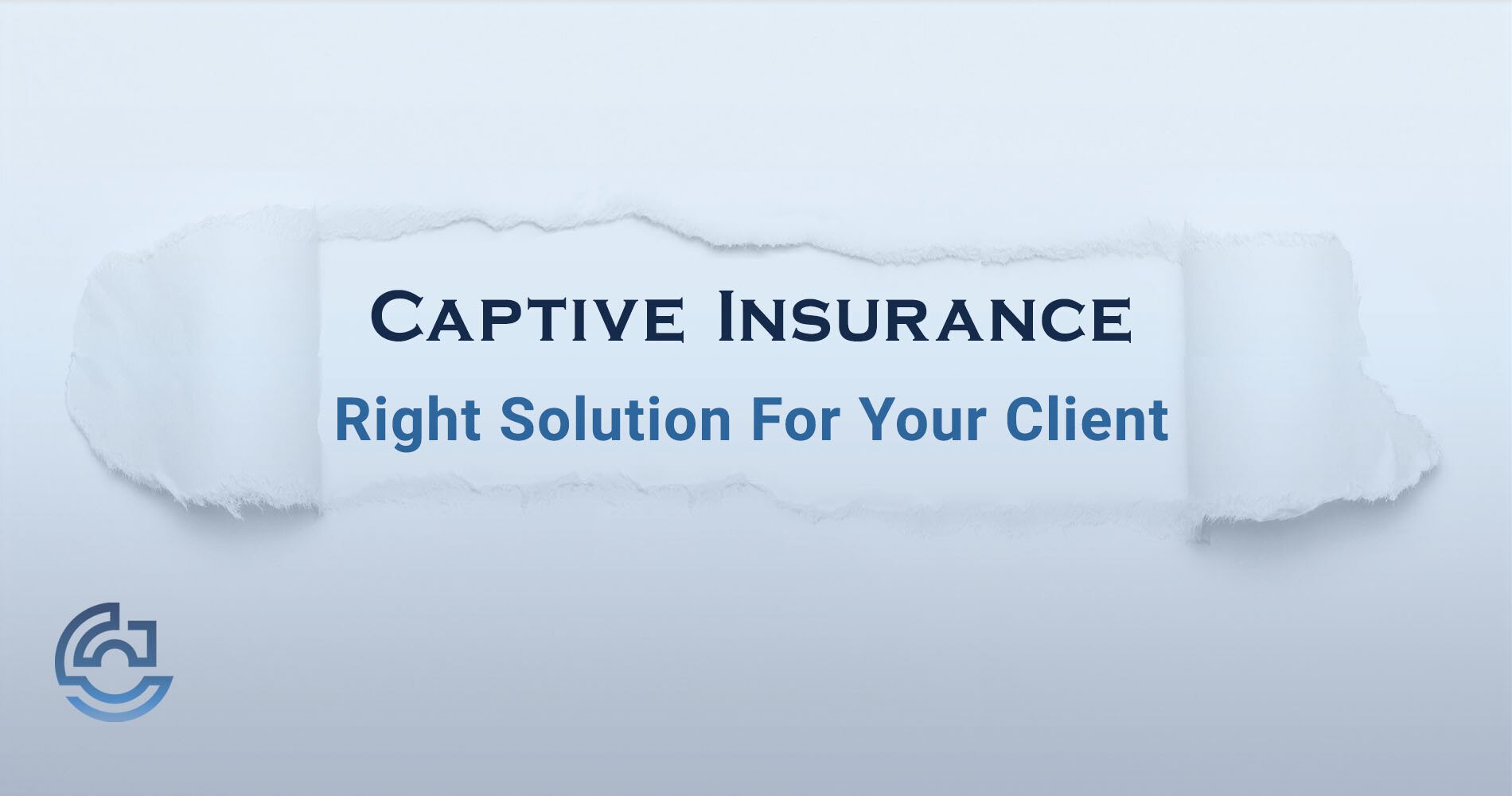Questions Independent Agents Must Ask Captive Prospects
May 9th, 2025
4 min read

While captive insurance is a game-changer for the right businesses, you might question which clients are ready for captives and what to ask. After all, you don’t want to risk wasting your time on the wrong client, confusing them, or somehow damaging trust in your expertise.
So, how do you know when a business is truly ready for a captive? How do you frame the conversation in a way that makes sense to your client?
This guide will break down must-ask questions to qualify a captive prospect, framing the questions to see the value of captives, questions that are less essential, and what you’re looking for when asking each question. You’ll find the must-ask questions to qualify a captive prospect and other questions you don’t need to ask, though they can help you and your client strategize.
Essential Questions to Qualify a Captive Prospect
The reason you need to ask these questions is to distinguish whether your client is ready for a captive.
1. “Have you changed how you buy insurance over the last five years?”
This simple question opens the door to the client's frustrations. This question also highlights that they keep going to different carriers or brokers, expecting a different result. The issue could be the way they buy insurance. Get out of the traditional market.
Many business owners feel they have little control over their insurance costs or coverage. Their answers will reveal:
- If they’ve dealt with unpredictable rate hikes.
- If they think their premiums are fair.
- If they see insurance as just an expense rather than a strategic tool.
They may be an ideal captive candidate if they mention volatility, dissatisfaction, or frustration with traditional insurance.
2. “How much are you currently spending on insurance?”
Not every business qualifies for a captive. They need to be spending at least $250,000 annually across these lines:
- Workers' Compensation
- Auto Liability
- General Liability
If their total premiums are under $250K+ annually, captives may not make sense for them.
3. “Does your business have the financial stability to take on more risk?”
Captives require financial stability and reliable cash flow. Ask:
- Is the business profitable?
- Would taking on a portion of your own insurance risk put any strain on your finances?
- Captives require your client’s business to be financially healthy enough to take on some risk. That means: Are they profitable? Do they have a steady cash flow? Could they cover small to mid-sized losses without it hurting operations? If the answer is yes, they’re probably ready.
- Do they have capital available for investment in a captive? If so, how much?
A struggling business looking for “cheaper insurance” isn’t a good fit. However, a profitable company looking for cost stability and control is ideal.
4. “What are your growth plans for your business?”
Captives are a long-term financial strategy. If a business is scaling, expanding, or investing in the future, a captive can provide:
- Predictable insurance costs to support expansion.
- A financial asset that grows with the company.
- Greater control over coverage options as operations evolve.
If a prospect is planning to sell or exit in 1-2 years, a captive isn’t the right move.
5. “What programs or efforts are in place to improve safety and prevent claims?”
Captives reward companies that take risk management seriously. A good captive candidate will have:
- A strong safety culture.
- Low-frequency, low-severity claims.
- A commitment to proactive loss control.
If they have high, frequent claims with no risk management plan, a captive won’t benefit them.
6. “Have you been approached about captives before?”
This question helps uncover:
- Their current understanding of captives.
- Any misconceptions they’ve heard.
- Whether they’ve been pitched a captive before, and why they didn’t move forward.
You can gauge how well your client knows captives. You can also see if they may have had a bad experience with captives before (e.g., a group captive with unfair penalties) or if it’s a new frontier.
7. “Do you feel you have control over your insurance costs?”
This question helps uncover their frustrations, such as:
- Premiums that increase even when they have few or zero claims.
- Feeling like they’re compensating for the loss of other businesses.
- Lack of transparency on where their premium dollars go.
Most businesses don’t realize how little control they have in the traditional insurance market. If they answer “yes” to this, it’s a strong indicator that captives align with their mindset.
Questions That Help You And Your Client Strategize
These aren’t questions that you necessarily need to ask. That said, they can be asked, in addition, to help you and your client strategize on their long-term goals.
“What frustrates you most about your current insurance setup?”
Some business owners might not immediately recognize their pain points. This question forces them to think deeper. Common answers include:
- “We keep getting rate hikes, even with few claims.”
- “I have no idea where my premiums go.”
- “I feel like I’m paying for other companies’ bad claims.”
This is your opportunity to introduce how captives solve these frustrations.
“How important is long-term financial planning to your business?”
Again, captives are a financial strategy. Ask:
- Do you want to turn insurance into a profit center instead of a cost center?
- Have you considered how insurance fits into your business’s long-term financial plan?
This shifts the conversation from “cost” to asset-building.
“How would stabilizing insurance costs impact your business?”
Businesses crave predictability. By reducing the volatility of rate hikes, captives help businesses:
- Improve cash flow planning.
- Avoid massive renewal price swings.
- Gain financial control over insurance expenses.
If rate fluctuations from traditional insurers have hurt them in the past, a captive could be the answer.
“Are you interested in aligning your insurance program with your business’s performance?”
Traditional insurance lumps businesses together, meaning good risks subsidize bad risks. Captives allow well-managed companies to:
- Directly benefit from their strong risk management.
- Recapture underwriting profits instead of handing them to a carrier.
- Create financial incentives for continued safety improvements.
This question will resonate if they take pride in their safety and risk management.
Are Your Clients Ready For Captives?
Asking the right questions moves the conversation from selling insurance to solving business problems for your clients. Captive insurance isn’t for everyone. But for growth-focused businesses looking for control, stability, and financial upside, it can be the ideal move for your best clients.
Next, read our Captive 101 guide on how to best help your clients feel confident going with captives.
To learn more about captives and for additional resources to help your best clients, become a member of Captive Coalition for FREE.





